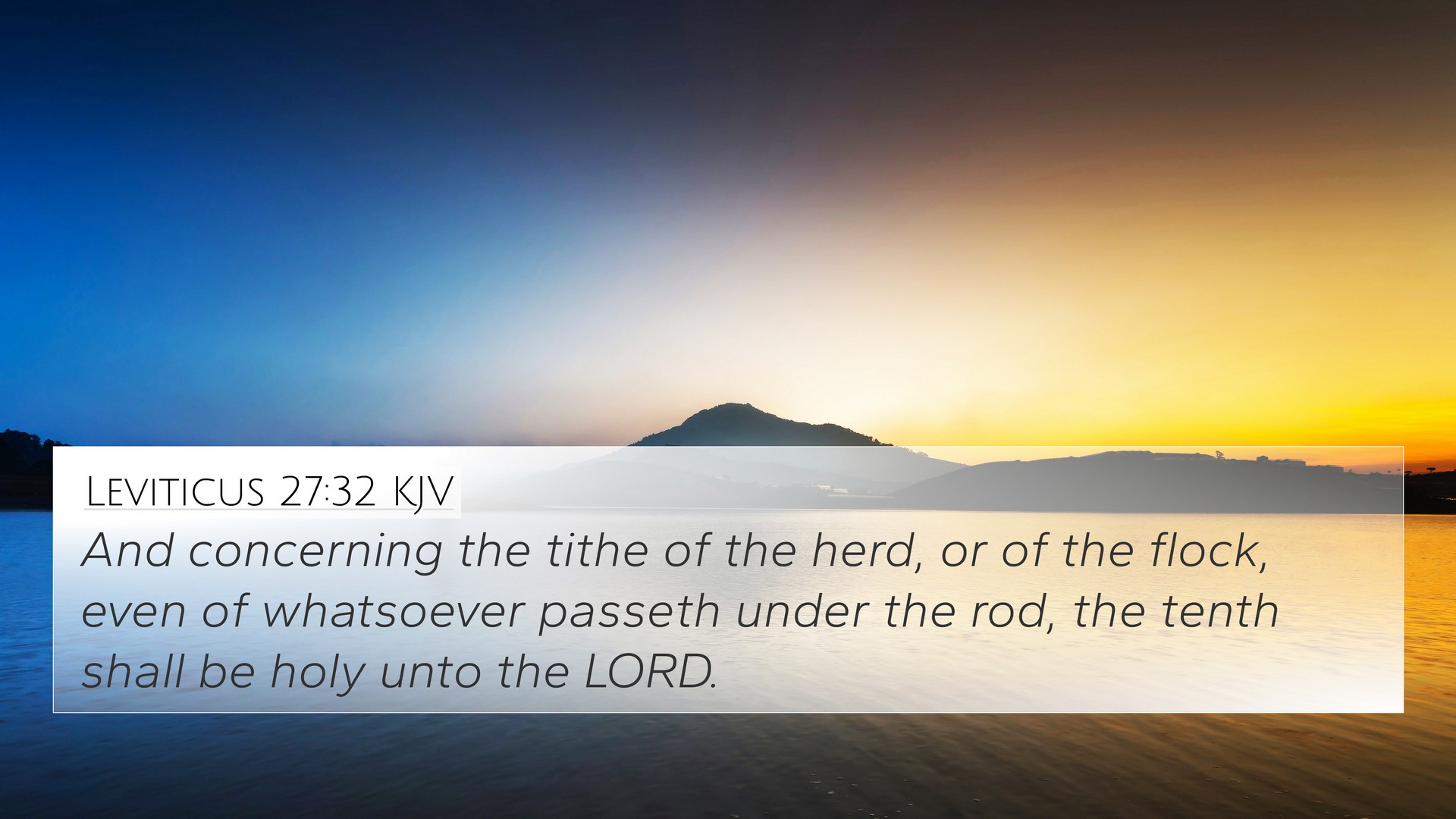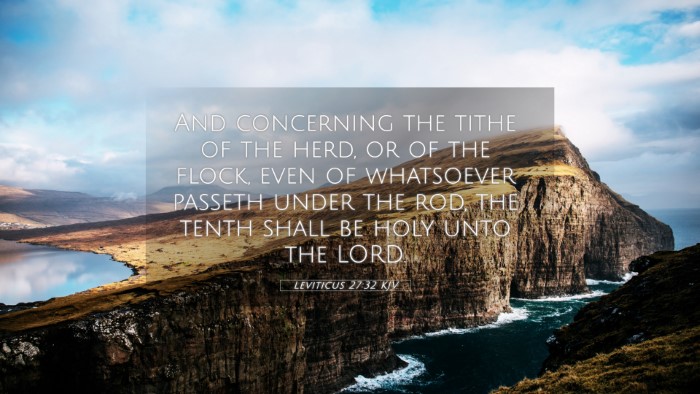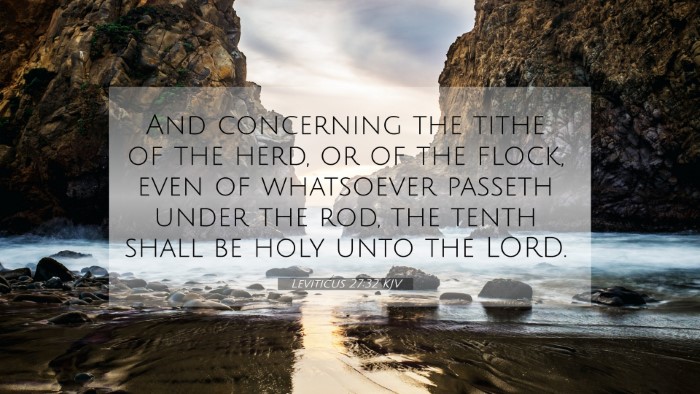Understanding Leviticus 27:32
Verse: "And concerning the tithe of the herd, or of the flock, even of whatsoever passeth under the rod, the tenth shall be holy unto the LORD." (Leviticus 27:32)
Summary and Interpretation
The passage from Leviticus 27:32 addresses the law of tithing as it pertains to livestock. It establishes that the Israelites were to take a tenth of their herd or flock and dedicate it to the Lord. This practice highlights the principle of giving back to God a portion of what He has provided, emphasizing His sovereignty and the importance of recognizing His providence.
Meaning and Insights from Commentaries
- Matthew Henry: Henry explains that this statute signifies acknowledgment of God’s sovereignty over the community’s resources. By offering the tenth, the people demonstrate their gratitude for God’s blessings. He notes that it represents a relationship of trust between the giver and God, indicating that the offerings should be of the best quality, reflecting honor due to God.
- Albert Barnes: Barnes emphasizes that the tithe is not merely a tax but a holy offering. He discusses the significance of the term "holy" in this context, signifying something set apart for divine purposes. Barnes highlights that this systematic approach to tithing was crucial for maintaining the spiritual health of the community and the Temple services.
- Adam Clarke: Clarke notes that this command regarding the tithing of livestock serves as a regulator of the community's economic interactions with God. He underscores that livestock represents a primary means of sustenance and wealth, making the act of tithing a significant spiritual exercise connected with the overall life of faith.
Bible Cross-References
This verse connects to various other passages that elaborate on the themes of tithing, holiness, and God's provision:
- Malachi 3:10: "Bring ye all the tithes into the storehouse..." highlights the expectation of bringing tithes to God for sustaining the work of the ministry.
- Deuteronomy 14:22-23: Discusses tithing from agricultural produce, reinforcing the principle laid out in Leviticus.
- Numbers 18:26: States the Levites must receive the tithe as their portion for service in the tabernacle.
- 2 Chronicles 31:5: Chronicles the faithful giving of the Israelites as they return from exile, showing the continuity of the practice.
- Hebrews 7:5-6: Discusses the tithe as a principle applicable in the New Covenant, linking to Melchizedek.
- 1 Corinthians 16:2: Calls for the collection for the saints, echoing the practice of systematic giving.
- Matthew 23:23: Jesus criticizes the Pharisees for neglecting justice and mercy while being meticulous about tithing, emphasizing the need for balance in faith practices.
- Luke 18:12: A Pharisee boasts about giving tithes, showcasing the attitude with which we should approach God’s expectations.
- 2 Corinthians 9:7: Encourages believers to give cheerfully, complementing the legalistic tithing concept with the spirit of generosity.
Thematic Connections
The theme of giving within the broader context of faith is prominent here. Leviticus 27:32 is part of a larger narrative that includes laws about holiness, sacrifice, and dedication to God. Understanding this verse through the lens of these connections sheds light on the comprehensive biblical approach to stewardship and God's expectations of His followers.
Conclusion
In summary, Leviticus 27:32 serves as a critical reminder of the necessity of setting aside a portion of our resources for God, a principle that transcends time and continues to hold relevance today. Any individual exploring this verse can find rich insights through systematic Bible cross-referencing, linking themes of tithing and faith throughout the Scriptures.
Methods for Bible Cross-Referencing
For those interested in deepening their understanding of biblical texts, employing tools for Bible cross-referencing proves invaluable. Utilizing a Bible concordance or a Bible cross-reference guide allows readers to discover connections between verses, enhancing their study. Consider these methods:
- Using a Bible chain reference technique to trace themes through interconnected passages.
- Engaging in comparative Bible verse analysis to explore differences and similarities between Old and New Testament teachings.
- Implementing cross-reference Bible study methods during personal or group Bible study to generate discussions and insights.
Overall Importance of Cross-Referencing
Understanding Leviticus 27:32 in the context of cross-referencing helps elucidate its spiritual stature. The verse connects not only with laws regarding tithing but also with broader themes of holiness, stewardship, and the relationship between God and His people. This inter-Biblical dialogue enriches our understanding of God’s will and encourages deeper engagement with Scripture.





